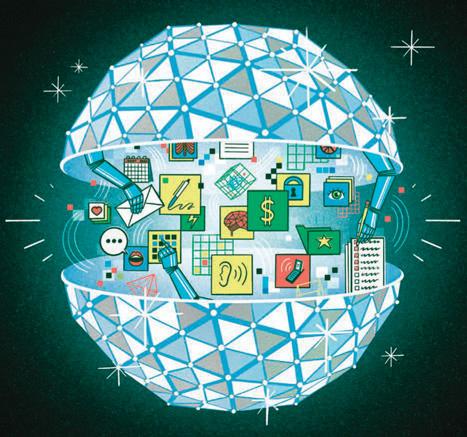1. MORE AND BETTER AI AGENTS
In 2025, we'll begin to see a shift from chatbots and image generators toward “agentic” systems that can act autonomously to complete tasks, rather than simply answer questions, says AI futurist Ray Kurzweil. In October, Anthropic gave its AI model Claude the ability to use computers—clicking, scrolling, and typing—but this may be just the start. Agents will be able to handle complex tasks like scheduling appointments and writing software, experts say. “These systems are going to get more and more sophisticated,” says Ahmad Al-Dahle, Meta’s VP of generative AI. Jaime Sevilla, director of AI forecasting nonprofit Epoch AI, envisions a future where AI agents function as virtual co-workers, but says that in 2025 AI agents will be mostly about their novelty. Melanie Mitchell, a professor at the Santa Fe Institute, warns that agents’ mistakes could have “big consequences,” particularly if they have access to personal or financial information.
2. A NATIONAL-SECURITY PRIORITY
Governments will increasingly view AI through the lens of national security, says Dan Hendrycks, director of the Center for AI Safety: “It’s how many of the big decisions about AI will be made.” The U.S. has curbed China’s access to critical chips, while Meta and Anthropic have forged closer ties with U.S. intelligence agencies by allowing them to use their AI models. “Political developments around the world are pointing us in the direction of continued competition,” says the U.N. Secretary-General’s envoy on technology, Amandeep Singh Gill, emphasizing the need to preserve “pockets of collaboration” between the U.S. and China.
3. GOVERNANCE RACES TO CATCH UP
While developers compete to build ever smarter systems, governments around the world are racing to regulate them. The E.U. leads with its AI Act. Its Code of Practice, set to be finalized by April and enforced from August, is one of the first laws targeting frontier AI developers, and many of the E.U. requirements will likely have global impact on how companies operate, unless they opt to take distinct approaches in different markets, ...


